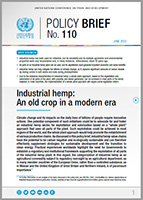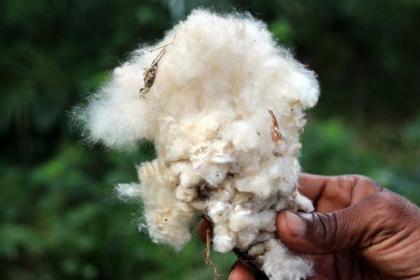
Climate change and its impacts on the daily lives of billions of people require innovative actions. One potential component of such initiatives could be to advocate for and foster an industrial hemp sector, for exploitation and valorization based on a “whole plant” approach that uses all parts of the plant.
Such exploitation could be achieved in most regions of the world, and the whole plant approach would help promote the establishment of various production chains.
As discussed in this policy brief, industrial hemp value chains have the potential to be carbon negative and ecologically sustainable and can therefore effectively supplement strategies for sustainable development and the transition to clean energy.
Practical experiences worldwide highlight the need for Governments to establish a regulatory and institutional framework supporting the exploitation of all parts of the industrial hemp plant.
In this regard, the categorization of industrial hemp as an agricultural commodity subject to regulatory oversight by an agricultural department, as in many member countries of the European Union, rather than a controlled substance, as in Malawi and the United Kingdom of Great Britain and Northern Ireland, is of paramount importance.
Key Points:
- Industrial hemp has been used for millennia, but its versatility and its multiple agronomic and environmental properties were only reconsidered and, in many instances, rediscovered, about 30 years ago.
- All parts of an industrial hemp plant can be used, and its exploitation could generate important economic and social benefits.
- Industrial hemp can help mitigate the effects of climate change, as it captures significant amounts of carbon dioxide by storing carbon in both stems and roots during photosynthesis.
- Due to the botanical characteristics of industrial hemp, a whole-plant approach, based on the exploitation and valorization of all parts of the plant, with possibly zero waste generated, can be achieved in most parts of the world; however, in most countries, the implementation of a whole-plant approach will require some legislative reform.




